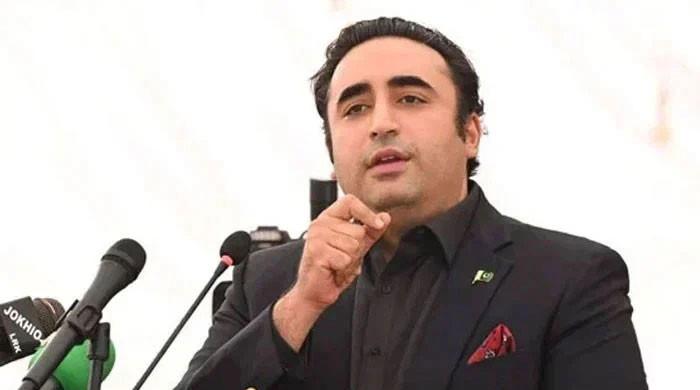Bilawal Criticizes India’s Actions on Indus Water Treaty
ISLAMABAD: Following India’s recent announcement regarding the Indus Water Treaty after the Pahalgam incident, Pakistan Peoples Party (PPP) Chairman Bilawal Bhutto-Zardari commented that New Delhi’s actions would result in its international isolation.
“Even in times of conflict, such measures were not implemented. India’s current stance is unprecedented, indicating a focus on exploiting terrorism for political advantage rather than addressing it,” stated the former foreign minister during a discussion on a local news program on Friday.
This statement follows a deadly shooting in Indian Illegally Occupied Jammu and Kashmir (IIOJK), where numerous tourists were killed in Pahalgam. Among the casualties was a foreign national.
In response to the attack, India has taken unilateral steps against Pakistan, including the suspension of a water-sharing agreement, the announced closure of a primary land border crossing, a reduction in diplomatic relations, and the cancellation of visas.
Pakistan has reciprocated by expelling diplomats and military advisors from India, revoking visas for Indian citizens (excluding Sikh pilgrims), and closing its side of the main border crossing.
The United Nations has called for both Pakistan and India to exercise restraint, advocating for peaceful resolution through constructive engagement.
During the program, Bilawal asserted that India does not have the right to unilaterally terminate the Indus Waters Treaty, emphasizing its international recognition and the involvement of other parties such as the World Bank.
“Using water as a weapon at a time when climate change threatens the world is irresponsible and unethical,” Bilawal added.
He also warned that conflicts over water would trap future generations in cycles of war. “No nation will support actions that undermine a globally recognized water-sharing agreement,” he stated.
The PPP chairman further noted that India is not interested in peace, but rather in undermining the status of IIOJK. “The revocation of Article 370 was not a measure against terrorism but a crackdown on peaceful protesters and political leaders,” he said.
Bilawal accused India of blurring the distinction between legitimate resistance and terrorism, thus avoiding its international obligations in Kashmir by blaming Pakistan. “They believe they can repeat past actions, but the world is now aware of these tactics,” he said.
He added that while the world denounces terrorism, there is no support for India’s decision to politicize shared resources or violate international agreements.
Regarding the canals project, Bilawal stated that the government has made a responsible decision, with final approval pending from the Council of Common Interests (CCI).
“It has been agreed that new canals will only be built with consensus. In a democracy, unilateral decisions are ineffective,” he remarked.
He stated that certain groups are attempting to incite regional tensions, particularly between Sindh and Punjab, for their own purposes. “Such negative elements will face political opposition,” he affirmed.



Comments (0)
No comments yet. Be the first to comment!
Leave a Comment